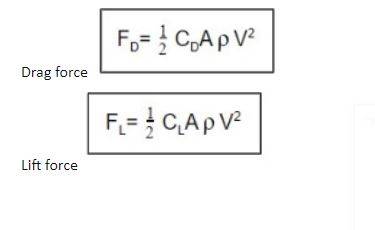Introduction
Compressible flows are the variable density flows while the incompressible flows deal with constant density. When the variation in the flow of density is negligible, the flow is incompressible. The study of the motion of compressible flows is discussed under Gas Dynamics. So, Mach number is a measure of compressibility characteristics of a fluid flow.
Mach Number
In fluid dynamics, the Mach number (M or Ma) is a dimensionless quantity representing the ratio of velocity past a boundary to the local sound. The name comes after the Austrian physicist and philosopher Ernst Mach.
M = μ/c
M = Local Mach number
μ = Local flow velocity
C = speed of sound in the medium
It shows the compressibility effect for a fluid, i.e., M < 0.3 implies that fluid is incompressible.
Classification of Mach Regimes
| Different Mach Regimes |
Behaviour |
|---|---|
| Subsonic Flow |
|
| Transonic Flow |
|
| Supersonic Flow |
|
| Hypersonic Flow |
|
Mach Number for Class 11
Mach number is the property of the fluid, which is a dimensionless quantity to study the flow of motion. It is classified into different regimes based on Mach number value. The topic’s weightage is around 5-10% of long answer type of question with the problem included.
Illustrative Examples
- An Aeroplane travelling at a speed of 1800 km/hr in the air of pressure of 1 bar at 10-degree celsius. Find the Mach number. ( k=1.4 and R=287 J/Kg K).
Temperature t = 10˚ C
T = 10 + 273 = 283 k
Speed V = 1800 km/hr = 500m/s
Velocity, C=KRT =√1.4×287×283
C = 337.20 m/s.
Mach number = V/C =500/337.20 = 1.48
- The Mach number for a body moving through the fluid is 0.5. What is the velocity of the fluid, if the speed of the sound is 345 m/s?
Mach number = V/C =0.5*345
velocity =172.5 m/s
- Determine the velocity of a bullet if the Mach angle is 30˚. Given the temperature of the air is 22˚ C. ( k=1.4 and R=287 J/Kg K).
C=KRT =√1.4×287×295 = 344.52 m/s
Mach angle =sinα =1/m
sin 30˚ = ½ =0.5
M =2
V = m*c= 2*344.5 =689.04m/s
FAQs
Q: What is compressibility?
Q: How are shock waves created?
- Mach reflection of shock waves is employed for removing micron-size dust particles from the surface of silicon wafers.
Q: What are the other dimensionless quantities related to fluid mechanics?
Q: What are the uses of Mach numbers?
- For compressibility assumptions.
- It acts as a tool to assess the noise generated by aircraft and the equipment.
- Mach number applies to the objects travelling with high speed and high-speed fluid flow inside tunnels or nozzles.
Q: What are the aerodynamic forces?
News & Updates
Laws of Physics Concepts Exam
Student Forum
Popular Courses After 12th
Exams: BHU UET | KUK Entrance Exam | JMI Entrance Exam
Bachelor of Design in Animation (BDes)
Exams: UCEED | NIFT Entrance Exam | NID Entrance Exam
BA LLB (Bachelor of Arts + Bachelor of Laws)
Exams: CLAT | AILET | LSAT India
Bachelor of Journalism & Mass Communication (BJMC)
Exams: LUACMAT | SRMHCAT | GD Goenka Test

